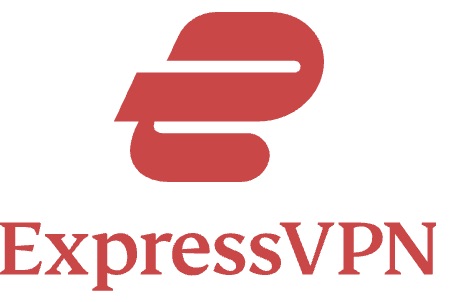3 Best Free VPNs for Linux in: Free VPNs are rarely ideal, as they often impose strict data limits, offer sluggish speeds, and lack key security features.
Finding a reliable free VPN for Linux can be even tougher — the OS isn’t as widely supported, and many VPNs don’t offer Linux apps at all. Even those that do frequently lack a graphical user interface (GUI), making them less convenient to use.
That said, a few solid free options do exist for Linux users. After testing the leading VPNs, I put together a list of the best free VPNs that work well with Linux. These providers deliver solid speeds, strong security, and decent distro compatibility.
That said, my top recommendation is ExpressVPN. While it doesn’t offer a free plan, it’s hands-down the best VPN for Linux in 2025 — and it comes with a 30-day money-back guarantee, so you can test it completely risk-free.
The Amazon FireStick is an incredibly powerful streaming device that has revolutionized the way we watch TV. Even if you don’t own a Smart TV, simply plug the FireStick into any HDMI port, and it instantly transforms your regular TV into a smart one with access to a wide range of streaming services. To take your FireStick experience to the next level, using a VPN is highly recommended. A FireStick VPN helps you bypass geo-restrictions and ISP throttling, ensuring uninterrupted and buffer-free streaming. Using a VPN with FireStick brings significant benefits, and one of the top options is ExpressVPN. This VPN offers excellent performance, strong encryption, and access to global content libraries. No matter where you are, ExpressVPN ensures a seamless, high-speed streaming experience with top-notch privacy protection. Plus, they offer a 30-day money-back guarantee, so you can try it risk-free. If for any reason you're not satisfied (though it’s highly unlikely), you can get a full refund. With ExpressVPN on FireStick, you can enjoy your favorite shows and movies without any interruptions or concerns. Experts Recommended:
1.ExpressVPN — Best Overall VPN for Linux in 2025
While ExpressVPN isn’t free, it stands out as the top VPN choice for Linux users in 2025. You can try it risk-free thanks to its 30-day money-back guarantee. It supports a wide range of Linux distributions, including Ubuntu, Debian, Fedora, Arch, and Mint.
Disclaimer
The following list is for educational purposes only. Firesticktricksapps does not create, own, host, run, manage, sell, or distribute any streaming apps, add-ons, websites, IPTV, or services. We also don’t earn commissions from featuring these services on our site. Our goal is to review and give an honest opinion from the end-user’s point of view to help people decide if these services are useful.
We cannot verify whether the services mentioned have legal licenses to distribute content everywhere. It’s up to our readers to make sure they are using these media services in line with the copyright laws of their countries. Firesticktricksapps assumes that all users are following the copyright rules in their region.
One standout feature is the flexibility in how you can control the app — either through a GUI (Graphical User Interface) or a CLI (Command-Line Interface). Even though many Linux users are comfortable with the terminal, having the choice is always nice. ExpressVPN is one of the few VPNs offering a GUI option via browser extensions for Chrome and Firefox.
In terms of privacy and security, ExpressVPN excels with industry-leading features:
- Strict no-logs policy: It doesn’t track your IP, browsing history, or downloads. This policy has been confirmed through independent audits.
- Comprehensive leak protection: Safeguards your data from IPv6, DNS, and WebRTC leaks.
- RAM-only servers: These servers don’t write any data to disk and are wiped clean with each reboot.
- Perfect forward secrecy: Changes encryption keys regularly to protect past and future sessions in case one key is compromised.
- ExpressVPN Keys: A built-in password manager that securely stores credentials, fills in logins, and helps generate strong passwords.
- Threat Manager: Blocks malicious sites and limits third-party tracking and data collection.
Installing and using ExpressVPN on Linux is straightforward. The setup process is quick — it took me about five minutes — and there are comprehensive guides available on their website in both text and video formats.
Performance-wise, ExpressVPN ranks among the fastest VPNs, making it perfect for everything from browsing and gaming to streaming and torrenting. In my experience, websites loaded quickly, and HD videos streamed smoothly without any buffering.
It’s also excellent for streaming and torrenting — areas where most free VPNs fall short. ExpressVPN gives you access to over 100 streaming platforms, including multiple libraries of Netflix, Amazon Prime Video, Disney+, Hulu, and BBC iPlayer. Torrenting is supported on all servers across 105 countries.
Plans start at INR 440/month, which is on the higher end, but the value justifies the price — especially for Linux users. Plus, ExpressVPN often runs promotions that add a few extra months for free.
2. Proton VPN — Best Free Linux VPN With Unlimited Data
Proton VPN stands out as one of the very few top VPNs that offer unlimited data on its free plan, making it an excellent option for general browsing and one of the best free VPNs overall. However, the free version is a bit limited — it supports only one connection at a time, offers access to servers in just five countries (US, Netherlands, Romania, Poland, and Japan), and doesn’t support streaming or torrenting.
Like ExpressVPN, Proton VPN provides both a GUI and a command-line interface (CLI) for Linux, giving you flexibility depending on your preference. It’s also compatible with many popular Linux distributions like Ubuntu, Debian, Mint, and Fedora.
On the privacy and security front, Proton VPN delivers solid protection. It uses perfect forward secrecy, enforces a strict no-logs policy that has been independently audited, and although it doesn’t use RAM-only servers, it implements full-disk encryption to keep your data safe. Another plus: all of Proton VPN’s apps are open-source, meaning anyone can review the code for security flaws.
Performance-wise, Proton VPN held up well during speed testing. Websites typically loaded in 2–3 seconds, HD videos started playing within 3 seconds, and there was only slight buffering at the beginning. I also like how the app automatically connects you to the fastest available server when launched — a handy feature.
If you need more features, Proton VPN’s premium plans start at just INR 310/month. These plans unlock streaming and torrenting support, access to servers in 117 countries, and include a powerful ad blocker. All paid subscriptions come with a prorated 30-day money-back guarantee.
3. Windscribe — Great Free VPN for Streaming on Linux
Windscribe is a solid option if streaming is your main priority. Unlike most free VPNs, it supports streaming services like Netflix, Disney+, and Amazon Prime on its free plan. You also get access to servers in 10+ countries, including the US, UK, Netherlands, and Hong Kong — which is more generous than most free VPNs.
The free plan offers up to 15 GB of data per month (2 GB by default, 10 GB more if you verify your email, and another 5 GB by tweeting about them). While not unlimited, that’s still enough for around 15 hours of streaming. Another big perk: Windscribe allows unlimited simultaneous connections, so you can use it across all your devices.
Linux users will appreciate Windscribe’s GUI support, and it works well on major distros such as Ubuntu, Fedora, Debian, and Arch. That said, the user experience still isn’t quite as smooth as ExpressVPN’s.
In terms of performance, Windscribe did well in my tests. Local servers delivered instant website and video loads, while distant ones had only a brief 2–3 second delay.
Windscribe also offers strong privacy features like perfect forward secrecy, RAM-only servers, and an effective ad and tracker blocker called R.O.B.E.R.T.
Premium plans start at just INR 260/month, offering unlimited data, more server options, and advanced features. However, the refund policy is a bit limited, with only a 7-day money-back guarantee.
Bonus: hide.me — Fast, Secure VPN for Linux With Unlimited Free Data
hide.me is another excellent free VPN that offers unlimited data and performs well on Linux. In my tests, webpages loaded instantly, and HD videos buffered for just 2–3 seconds before playing smoothly.
Its free plan includes 8 server locations, including the US, UK, Germany, and the Netherlands — a good spread that helps ensure decent speeds based on your location.
The Linux app also comes with robust security, including RAM-only servers, perfect forward secrecy, and full leak protection, which keeps your data safe.
If you’re looking for more features, hide.me’s premium plans start at just INR 240/month. The upgrade gives you access to streaming support, servers in 58 countries, and extra tools. All paid plans come with a 30-day money-back guarantee.
Best VPN For Streaming
1. ExpressVPN — Best VPN With the Fastest Speeds for Smooth Streaming

| Best Feature | The fastest speeds we tested, ensuring you can stream, browse, game, and torrent without interruptions |
| Server Network | 3,000 servers in 105 countries give you fast worldwide connections |
| Simultaneous Device Connections | Up to 8, so you can protect your compatible devices under one subscription |
| Works With | Netflix, Disney+, Amazon Prime Video, BBC iPlayer, (HBO) Max, Hulu, Vudu, DAZN, and more |
2. NordVPN — Best VPN With the Fastest Speeds for Smooth Streaming


| Best Feature | High security features and fast speeds for a reliable connection |
| Server Network | 5,400 servers in 60 countries for improved accessibility and connection speeds |
| Simultaneous Device Connections | Up to 6 devices, suitable for protecting multiple devices simultaneously |
| Works With | Netflix, Disney+, Amazon Prime Video, BBC iPlayer, (HBO) Max, Hulu, Vudu, DAZN, and more |
How to Choose the Best Free VPN for Linux in 2025
When selecting a free VPN for Linux in 2025, here are the key things to consider:
- Linux Compatibility: Make sure the VPN offers solid support for Linux. All the VPNs mentioned here come with either a user-friendly graphical interface (GUI) or a command-line interface (CLI) app, and they work well with popular Linux distributions like Ubuntu, Fedora, Debian, Mint, and Arch.
- Generous Data Limits: Free VPNs often come with strict data usage limits. The options on this list provide ample data for browsing and streaming without constant worry. Proton VPN stands out by offering unlimited data on its free plan.
- Fast Connection Speeds: VPNs generally slow down your internet due to the encryption process, and free services sometimes throttle speeds even further. The VPNs recommended here all deliver strong performance, with ExpressVPN offering the fastest connections during tests.
- Wide Server Availability: Some free VPNs only let you access a small number of servers. Ideally, pick a VPN with a broad server network or one with servers close to your location, which helps improve speed and reliability.
- Robust Security Features: Opt for a VPN with strong security measures such as AES 256-bit encryption, a strict no-logs policy, and a kill switch that disconnects you from the internet if the VPN connection drops unexpectedly.
- Affordable Upgrade Options: If you ever decide to switch to a paid plan, it helps if the VPN offers reasonably priced premium options. All the VPNs on this list provide risk-free upgrades with a money-back guarantee, so you can try the service without long-term commitment.
Potential Drawbacks of Free VPNs for Linux
While free VPNs can be useful, they come with several limitations:
- Limited or No Linux Support: Many free VPNs don’t offer dedicated Linux apps or aren’t compatible with all distributions. GUI support is also rare, which may make setup and usage more complicated for newer users.
- Slower Speeds: Free services often cap speeds, causing slow web browsing, buffering while streaming, or lag during online activities. Premium VPNs like ExpressVPN maintain consistently high speeds.
- Weaker Privacy Protections: Some free VPNs skimp on important privacy tools like leak protection, no-logs policies, or kill switches. Worse, some might track your online activity and sell it to advertisers, putting your personal data at risk.
- Data Usage Caps: Most free VPNs impose strict data limits—sometimes daily or monthly. Once you hit the cap, the VPN becomes unusable until the next cycle. Proton VPN is a rare exception, offering unlimited bandwidth for free users.
- Limited Server Access: With fewer servers available, you may be forced to connect to distant locations or suffer from server congestion, both of which can slow down your connection.
- No Streaming Support: Many free VPNs don’t support streaming services, or they offer too little data for streaming to be practical. Premium VPNs like ExpressVPN work reliably with platforms such as Netflix, Amazon Prime Video, Hulu, BBC iPlayer, and Disney+, with no data restrictions.
Free vs. Paid VPNs for Linux: What You Need to Know
Linux users often get overlooked by VPN providers, especially when it comes to free services. Since Linux isn’t as widely used as Windows or macOS, many free VPNs either offer minimal Linux support or skip it altogether. The ones that do support Linux typically only provide basic apps — and usually just a CLI (command-line interface), which can be intimidating for some users.
That said, the better free VPNs still include essential security features like AES 256-bit encryption, a kill switch, and strict no-logs policies, ensuring your data stays private. A few even go further, offering extras like DNS leak protection, RAM-only servers, or perfect forward secrecy for enhanced security.
However, free VPNs come with trade-offs. Most of them throttle your connection speed and enforce tight data limits, making it tough to stream, game, or download large files. You’re often limited to just a few servers, too — which can get overcrowded and slow down your connection even more.
For example:
- hide.me offers unlimited data and 8 server locations on its free plan, but only provides a CLI app — not the most user-friendly setup.
- Windscribe gives you access to over 10 server locations and has a GUI app for Linux, but caps your data at up to 15 GB/month.
In contrast, paid VPNs are generally a much better option for Linux users. They typically offer faster speeds, no data caps, full access to global server networks, and strong support for streaming and torrenting. They also support multiple devices per account, provide more advanced security features, and come with 24/7 customer support. Plus, most paid VPNs include a money-back guarantee, so you can try them risk-free before committing.
Comparison Table: Free vs. Paid VPNs for Linux
| Feature | Free VPNs | Paid VPNs |
|---|---|---|
| Linux support | (limited or no support) | Full support with GUI/CLI |
| Unlimited data | No | Yes |
| Fast speeds | (often throttled) | Yes |
| Privacy | (some sell user data) | No-logs policies |
| Full server network access | (limited locations) | Global access |
| Streaming support | (usually blocked) | Works with major platforms |
| P2P/torrenting support | No | Yes |
| 24/7 customer support | No | Yes |
| Protocol options | (usually just 1) | Multiple (WireGuard, OpenVPN…) |
| Multiple device connections | (typically 1) | 5–10+ devices |
Best VPN For Firestick Free Trial


Best overall VPN with a free trial
ExpressVPN
Privacy protection and transparency
Show our expert takeFree VPNs for Linux to Avoid
Some free VPNs are not only unreliable — they’re risky to use, especially on Linux. Here are a few to steer clear of:
- Hola VPN: Functions more like a peer-to-peer network than a real VPN. It routes traffic through other users’ IP addresses — meaning someone else could commit a crime using your IP.
- AceVPN: Lacks key security features and has no dedicated apps — just a clunky manual setup for all operating systems, Linux included.
- FinchVPN: Offers little to no information on its website and no clear way to contact support. It’s unclear what you’re actually getting.
- Tuxler VPN: Operates similarly to Hola by sharing IP addresses between users, plus it logs and sells user data — a major privacy red flag.
- SuperVPN: Known for logging sensitive user data and suffering a massive breach that exposed over 133 GB of information.
Frequently Asked Questions About Free VPNs for Linux
Are there any 100% free VPNs for Linux?
Yes, there are! One of the best free VPNs for Linux is Proton VPN. It’s one of the few that offers both a GUI and a CLI app, and it supports a wide range of Linux distributions, including Ubuntu, Debian, Mint, and Fedora. Its free plan is one of the most generous available — you get unlimited data, access to 5 server locations (in the US, the Netherlands, Romania, Poland, and Japan), solid speeds, and top-tier security and privacy features.
Does Linux come with a built-in VPN?
No, Linux doesn’t include a built-in VPN by default. However, installing a third-party VPN is easy. ExpressVPN is a top choice in 2025, thanks to its excellent Linux support — it offers both GUI and CLI apps and works with major distros like Ubuntu, Fedora, Debian, and Arch. It’s also one of the fastest VPNs on the market, with strong security and privacy protections.
Is there a free VPN available for Ubuntu?
Ubuntu doesn’t come with a VPN built in, but there are free VPNs that work well on it. A standout is Proton VPN, which offers a Linux GUI, unlimited data, and support for 5 server locations worldwide. It also delivers fast performance for browsing and strong privacy protections — all without costing a cent.
How do I install a VPN on Linux?
Installing a VPN on Linux is simple. Just follow these three steps:
Choose a VPN that supports Linux. Make sure it’s compatible with your specific distro. ExpressVPN is a great all-around option that supports popular distributions like Ubuntu, Mint, Debian, and Fedora.
Download the VPN. Sign up for the VPN service and download its Linux client from the official website.
Install and set it up. Follow the provider’s setup guide — each distro may have a slightly different installation process. Most top VPNs offer detailed Linux tutorials to walk you through it.











Related Articles